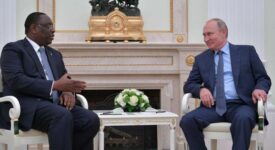Migration is still number one on European agenda despite the fact that the actual number of migrants arriving in the European Union is declining dramatically. This year, only around 80,000 have arrived so far, compared to 300,000 in 2016. Despite the decline, European countries are still preoccupied with the agenda and a number of them have hinted their intentions to leave the UN global compact on migration even though the deal is not legally binding. The idea of “regional disembarkation platforms” has not taken root in the African Union and North African countries and Commission President Jean Claude Juncker admitted that it should have never been on the agenda.
However, the idea of “cash for migrant-control” deal still lives on. Negotiations are underway to achieve similar goals via different means. The desire to create a ‘Fortress Europe’ comes from few states but not from Brussels. With the European elections looming in May 2019, the mantra that “something must be done” to appease the voters’ fears is prevalent. To address the situation, the EU will have to settle for ad hoc solutions, and a few options are being discussed. The EU is already negotiating a “cash-for-migrants” agreement with Egypt with the early 2019 deadline for its signoff.
This EU’s deal with Egypt is based on the EU-Turkey model. At the same time, Brussels has just finalized a new free trade agreement with Morocco, who is seeking to position itself between Europe and sub-Saharan Africa. There is little worry as to whether these deals are going to be reached. Egypt is in particular need of cash amidst a deep recession and an unpopular IMF program. Tunisia and Algeria have been particularly against the idea of ‘hotspots’ and the negotiations with Libya are going to be the riskiest for the EU’s credibility given the situation in the failed state that is run by militia.







